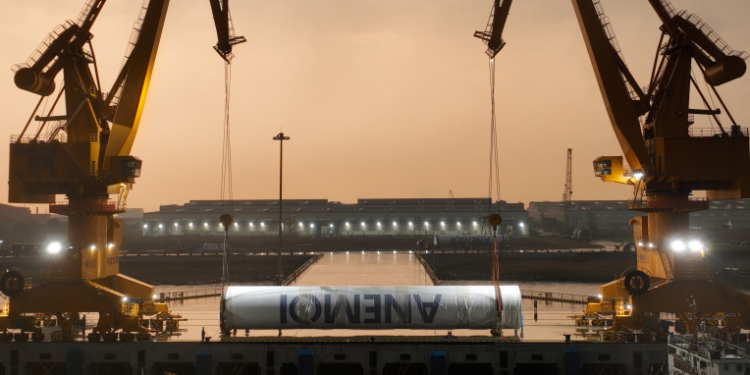July 17, 2025

Anemoi Marine Technologies has developed a new method for verifying the performance of wind-assisted propulsion systems that simplifies testing while improving accuracy.
Detailed in their white paper Performance Verification of Wind-Assisted Ship Propulsion Systems by On-Off Testing, the methodology was validated by Lloyd’s Register Advisory and involves collecting vessel data during normal operations with the rotor sails turned on and off in varying conditions.
By describing our performance assessment methodology in detail, we hope to contribute meaningfully to the wider industry discussion and move closer to a standardised framework that enables clear, comparable results across all WAPS technologies.
… said Luke McEwen, Technical Director of Anemoi Marine Technologies
As explained, this practical approach avoids the need for costly sea trials and allows accurate predictions of fuel savings. Unlike existing standards, Anemoi’s method is applicable across all wind-assisted propulsion technologies and addresses the limitations of traditional frameworks such as ISO 19030.
It allows performance predictions to be made across a broad range of operational scenarios without requiring testing in every condition. This model can be used throughout a vessel’s life to generate real-time or voyage-based estimates of fuel and emissions savings.
Credit: Anemoi
A year-long case study involving the Kamsarmax vessel TR Lady, fitted with three large Rotor Sails, demonstrated average net fuel savings of 9.1% and reductions of 7 tonnes of CO₂e per sailing day. The analysis was based on more than 160 on/off rotor tests.
The current standards and guidelines around wind-assisted propulsion verification are relatively sparse, and an opportunity exists for a process that is robust, widely adopted, and transparent. Anemoi’s methodology achieves this.
… commented Dr. Santiago Suarez de la Fuente, Lloyd’s Register Advisory Ship Performance Manager

